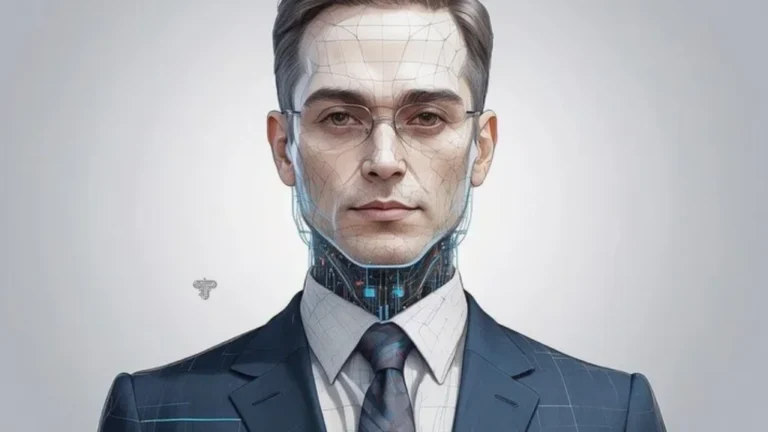AI Trends in 2025: Revolutionizing the World Around Us
Artificial intelligence and Data Science are two of the most transformational forces in modern society. It has reached almost every other life sector- healthcare, education, finance, and entertainment. A study found that AI has a good scope to break many important barriers, reshape industries, and present new paradigms for innovation and efficiency by 2025. Therefore, this article explores the trends of AI in 2025.
Emergence of Specialized AI Models
AI systems have been developed for general purposes. However, with the demand for task-specific capabilities, there has been emergence of specialized AI models. Such models will dominate sectors requiring precision and expertise by 2025.
- Healthcare-Specific Models: The AI systems will delve deeper into specific tasks such as radiology, drug formulation, and patient-specific treatment planning. The models will help in the earlier diagnosis of diseases through enhanced image analysis and detection of specific biomarkers’ presence.
- Legal AI: Legal work will be much more efficient with the streamlining of workflow in drafting contracts and case precedents analysis to predict outcomes from historical data usage.
- Educational AI: This will be based on the personalized learning tools that provide a customized learning that responds to students’ needs and performance metrics that are analyzed in real time.
These highly specialized systems will create unprecedented accuracy, efficiency, and scalability for the industries.
Autonomous AI Agents
Autonomous AI agents will change the way tasks are performed. Unlike simple automation, these agents will perform complex functions without human intervention at all times. Their impact will be felt in 2025:
- Business Operations: AI agents will handle customer queries, analyze market trends, and manage inventory without human intervention to ensure smooth business operations.
- Personal Productivity: Virtual assistants will proactively schedule appointments, manage finances, and organize personal tasks based on user behavior and preferences.
- Creative Support: Autonomous agents can help writers, designers, and musicians brainstorm and develop creative assets; innovation will reach new dimensions.
Autonomous agents will revolutionize the way people and organizations approach productivity.
Multimodal AI Emergence
A significant trend in 2025 will be the emergence of multimodal AI systems that can perceive and process various data types simultaneously. This will make AI much more versatile and applicable:
- Unified Communications Platforms: AI will integrate text, video, audio, and images to deliver a more natural and interactive interface, reducing tasks to virtual meetings or collaborative work.
- Creative Applications: This form of AI will allow users to describe a concept in text and receive a fully rendered visual or video representation of ideas.
- Medical Diagnostics: AI tools will combine patient history, lab reports, and imaging data to deliver holistic diagnostic recommendations.
Bridging multiple modalities will enable AI to create richer, more intuitive interaction for users.
Ethical AI Development and Global Governance
As AI spreads, increasing the need for more robust ethical frameworks and regulation, the areas are Algorithmic Accountability, building an AI system that can explain its decision-making processes, thereby increasing the trust of the same, mainly in sensitive areas such as healthcare and law enforcement.
- Privacy Protections: AI-based data gathering will be subject to more stringent privacy regulations so that users’ data will not be exploited.
- Global Norms: By 2025, global organizations, including the United Nations and the European Union, will propose universal AI standards to address issues of bias, transparency, and accountability.
Ethical AI will ensure that technology is developed based on the needs of society.
AI-Driven Creativity
AI will be a partner in creative industries and will enhance human ingenuity, making it easier for new creators to enter the market. Some of the key areas of development are:
- Generative Art: AI-fortified tools that will create intricately detailed design and animation based upon human imagination powered by machine precision.
- Film and Media: Systems will produce fully lifelike characters, complete soundtracks and even script whole scenes, greatly minimizing production times
- Interactive Experiences: Gaming, virtual reality — AI to be used for interactive environments that might change in real time based on choice.
Until 2025, the creative process will merely be human vision and AI capabilities straight clashing into each other.
AI in Healthcare: The Paradigm Change
Healthcare is one of the most promising areas for AI innovation. Most definitely, by 2025, AI applications will revolutionize patient care and medical research:
- Real-Time Monitoring: AI-based wearables will be able to continuously monitor the patient’s vital signs and alert doctors in case of any potential emergencies.
- Personalized Medicine: AI will study the genetic data as well as the lifestyle information in order to deliver treatments uniquely tailored for each individual.
- Drug Discovery: Machine learning models will enable faster drug discovery by simulating molecular interactions thereby saving time in research to the market.
The AI will work towards improved outcomes for patients, reducing costs simultaneously.
Financial Sector Transformation
The financial sector will continue to apply AI for operational excellence and customer satisfaction:
- Predictive Analytics: AI will help make better financial forecasting, allowing businesses to predict market trends and adjust strategies proactively.
- Fraud Detection: Machine learning algorithms will identify suspicious activities in real time, improving security and trust.
- Customer Experience: Virtual financial advisors will provide personalized investment advice and portfolio management, making expert financial advice more accessible to everyone.
AI in finance will bring smarter, safer, and user-centric solutions.
Workforce Transformation
AI will change the way people work. By 2025, it will be evident in the following ways:
Automation of Repetitive Tasks: AI will take over mundane tasks from data entry to simple customer queries, allowing employees to focus on strategic activities.
- Upskilling Opportunities: Organizations will invest heavily in reskilling programs, equipping employees with the tools to collaborate with AI effectively.
- Hybrid Work Models: AI will facilitate remote collaboration through advanced tools, ensuring productivity in distributed teams.
The future workforce will collaborate between human creativity and AI efficiency.
India’s Role in the Global AI Ecosystem
India is set to play a pivotal role in shaping AI’s global future. By 2025:
- AI-Powered Infrastructure: From smart cities to precision agriculture, India will implement AI-driven solutions to address unique challenges.
- Start-Up Ecosystem: The country will be home to a very vibrant startup culture that will be an innovation hub in AI-driven healthcare, education, and e-commerce.
- Global Leadership: As one of the fastest-growing economies, India’s AI advancements will significantly contribute to global research and development efforts.
India will be at the forefront in the world by being proactive in AI.
Sustainability and Environmental Impact
AI will be used to promote sustainability by 2025:
- Climate Modeling: AI-based advanced simulations will help us better understand climate change, leading to better policy decisions.
- Energy Efficiency: AI systems will optimize industry energy use, reduce waste, and lower carbon footprints.
- Resource Management: In agriculture, AI tools will optimize water usage, crop yields, and soil health monitoring.
AI-driven sustainability efforts will ensure a balance between technological progress and environmental responsibility.
Tech Blaster
Conclusion
It is only until 2025, though, that AI will morph fully into industries and redefine the ways society works. From specialized models to autonomous agents, to ethical governance to workforce adaptation, these are trends representing a view into the future where AI is fully integrated in every possible area of life. These changes will require collaboration, adaptability, and commitment to using AI as a force for good. The prospects are as gigantic as the challenge and therefore take 2025 as a hallmark for AI, as well as human history, as we stand on the threshold of this transformative era.






